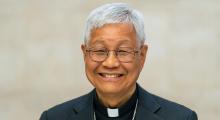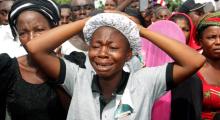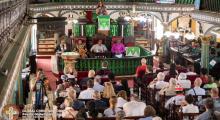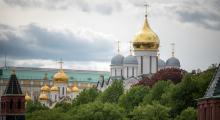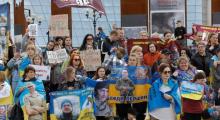Issued by the Catholic Center for Studies and Media - Jordan. Editor-in-chief Fr. Rif'at Bader - موقع أبونا abouna.org
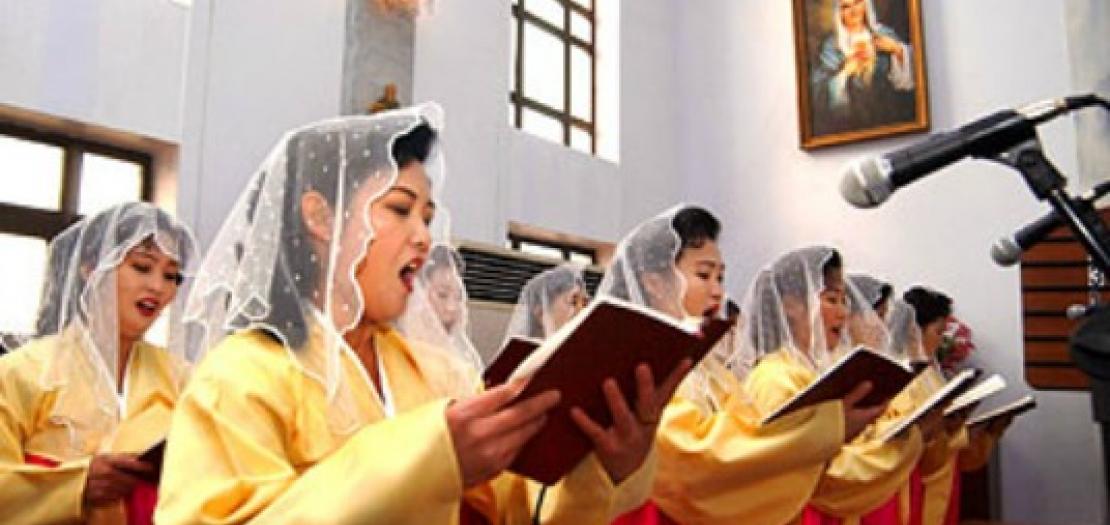
Millions of people cheered when the North and South Korean Olympic teams marched together at the opening ceremony of the Winter Olympics in PyeongChang, South Korea, which Pope Francis said “gives hope for a world in which conflicts can be resolved peacefully through dialogue and mutual respect, as sports also teaches us to do.”
Adding to the hopes that this year’s Olympic Games may create an opportunity to improve ties between North Korea and South Korea, Kim Yo-jong - the sister of North Korean leader Kim Jong-un, and head of the North’s Olympic delegation - has invited the President of South Korea, Moon Jae-in, to visit Pyongyang for what would be only the third inter-Korean summit.
In fact, Kim Sung-han, who served as South Korea’s vice foreign minister in 2012-2013, told Reuters, “North Korea clearly appears to be winning the gold” in positive news from the Olympics.
Despite these efforts at peacebuilding, “nothing will come from it” unless more freedom is given to the North’s oppressed Christian community, according to one leading Christian human rights organization.
“We do know the situation of the Christians in North Korea, and it is abysmal. They are given no religious freedom, and no rights,” said a spokesperson for the communications officer at Open Doors UK, which helps persecuted Christians around the world.
Open Doors estimates there are over 300,000 Christians in North Korea, which has state-enforced atheism, although in reality worships the ruling Kim family.
The organization says tens of thousands of Christians are incarcerated in forced-labor camps, and thousands more must practice their faith in complete secrecy.
According to the United States Commission on International Religious Freedom, North Korea ranks as “one of the world’s most repressive regimes.”
The commission has listed it as a ‘Country of Particular Concern’ for fourteen years.
“Freedom of religion or belief does not exist and is, in fact, profoundly suppressed. The regime considers religion to pose the utmost threat- both to its own survival and that of the country. The North Korean government relentlessly persecutes and punishes religious believers through arrest, torture, imprisonment, and sometimes execution,” the commission’s 2017 report reads. “Once imprisoned, religious believers typically are sent to political prison camps where they are treated with extraordinary cruelty.”
Open Doors is asking those watching the Olympics to keep the North’s Christians in mind during the games.
“It’s about remembering that though we are having a wonderful time, and much of the world is united at the Games, the situation across the border is really abysmal and that there are human rights violations going on. We just ask people to remember the Christians and to pray for them,” Spencer told Crux.
The northern part of the Korean peninsula had been a center of Christianity in the early part of the 20th century, and Pyongyang was even called the “Jerusalem of the East.”
Kim Il-sung, the founder of the North Korean state and the grandfather of the current ruler, was from a Protestant family. Kim later became a communist, and when Korea was divided after World War II, it became an atheist state.
According to Aid to the Church in Need, at least 200,000 Christians have gone missing since 1953.
Juche, the state ideology which emphasized self-reliance and Korean nationalism, took on more of the elements of a personality cult surrounding Kim, and after his death in 1994, his family.
Another group working for persecuted Christians, Release International, is calling for Christians to pray for North Korea’s leaders during the Olympics, so they might convert.
Eric Foley, Release’s partner who works with North Korean defectors, says a “radical change of heart” in the country’s leaders is necessary for the country to experience change.
“The status quo means Christians experience torture and imprisonment for the sake of their faith,” Foley said. “We should pray that it becomes possible for the first time in their lives for Christians in North Korea to practice their faith without recrimination.”
Coincidently, the Olympics coincide with the beginning of Lent, and Open Doors is distributing free copies of Live Like a North Korea, a resource guide to showing solidarity with Christians in the communist state.
“There is a daily reading - a thought for each day - there’s lots of quotes from Korean believers and prayers. Then there is a weekly activity, which you can pick from a few, such as burying a Bible because Christians in North Korea are not allowed to possess a Bible, so they might hide their Bibles to never be caught with it,” Spencer told Crux.
Through these sorts of actions, you replicate a little bit of what it means to be living in those sort of circumstances, and combined with the prayerful reflection, it is supposed to help provide a window into the world of a North Korea Christian,” she said.
Open Doors also provides Christians with emergency relief aid and distributes books and other Christian materials to people in North Korea. They also help North Korean Christians in China, providing shelter and training materials.
Spencer said many North Korean Christians who have made it to China return to their homeland to evangelize.
U.S. President Donald Trump highlighted such an incident during both his State of the Union address and speech at the National Prayer Breakfast.
North Korean defector Ji Seong-ho said he was converted by Christians working the ‘underground railroad’ to China.
“Before his escape, when Seong-Ho was being tortured by North Korean officials, there was one thing that kept him from losing hope: Over and over again he recited the Lord’s Prayer,” Trump said at the National Prayer Breakfast.
Ji escaped North Korea in 2006 by crossing the Tumen River into China, and then took a circuitous route through China, Laos, Myanmar, and Thailand before he finally reached South Korea.
“God’s love needs to be conveyed to the people of North Korea and North Korean souls need God’s salvation. Under that conviction, I am doing what I am doing,” Ji told EWTN.


